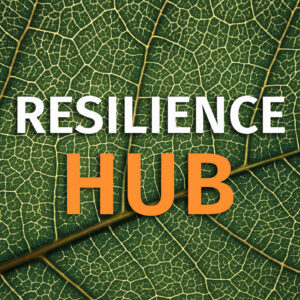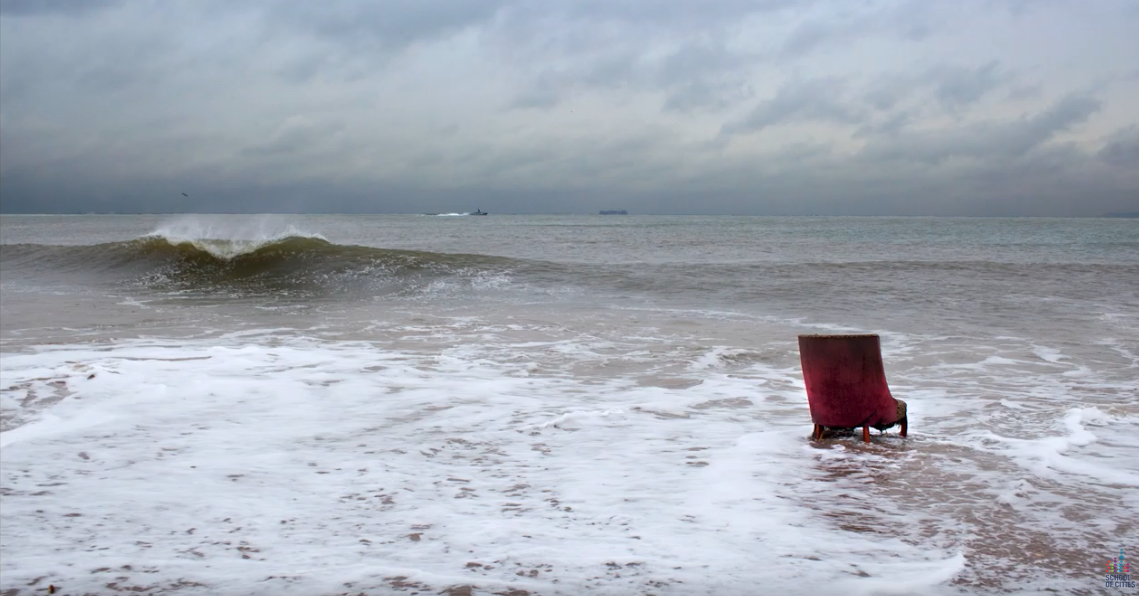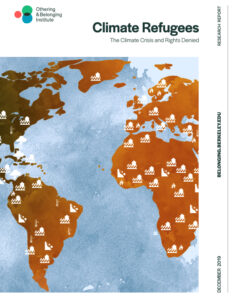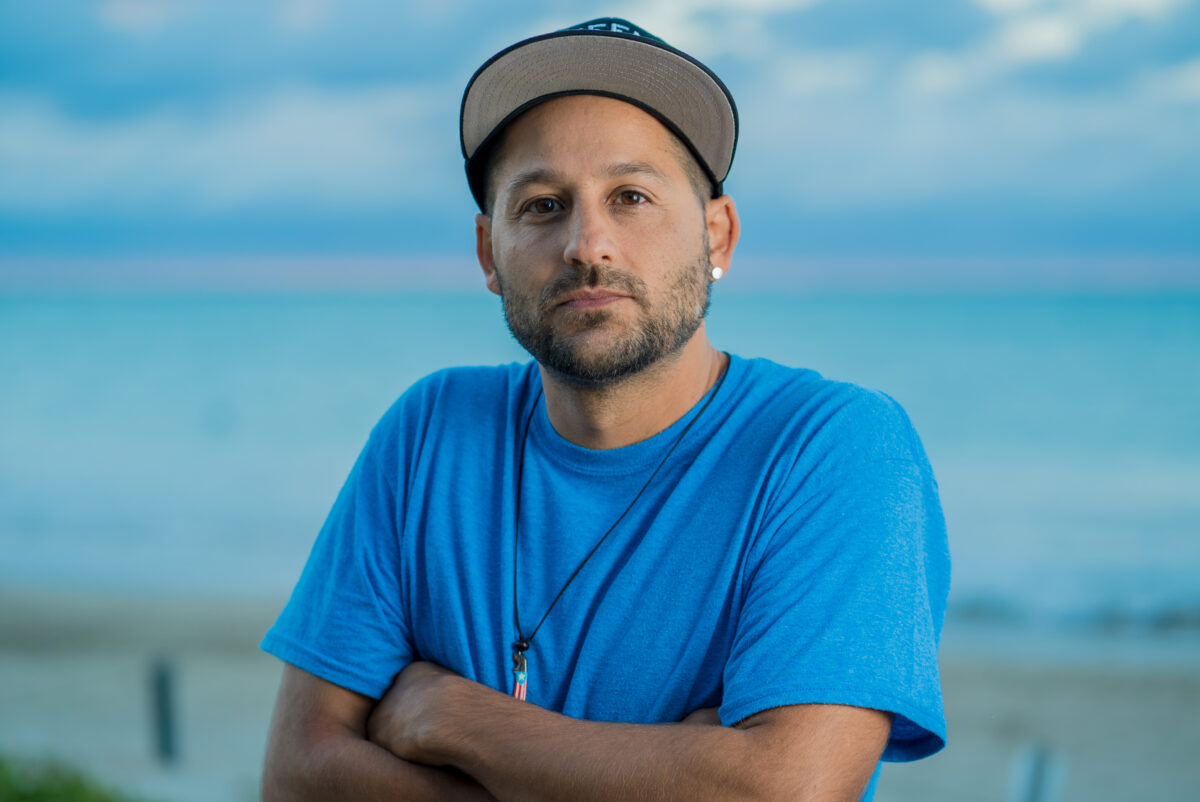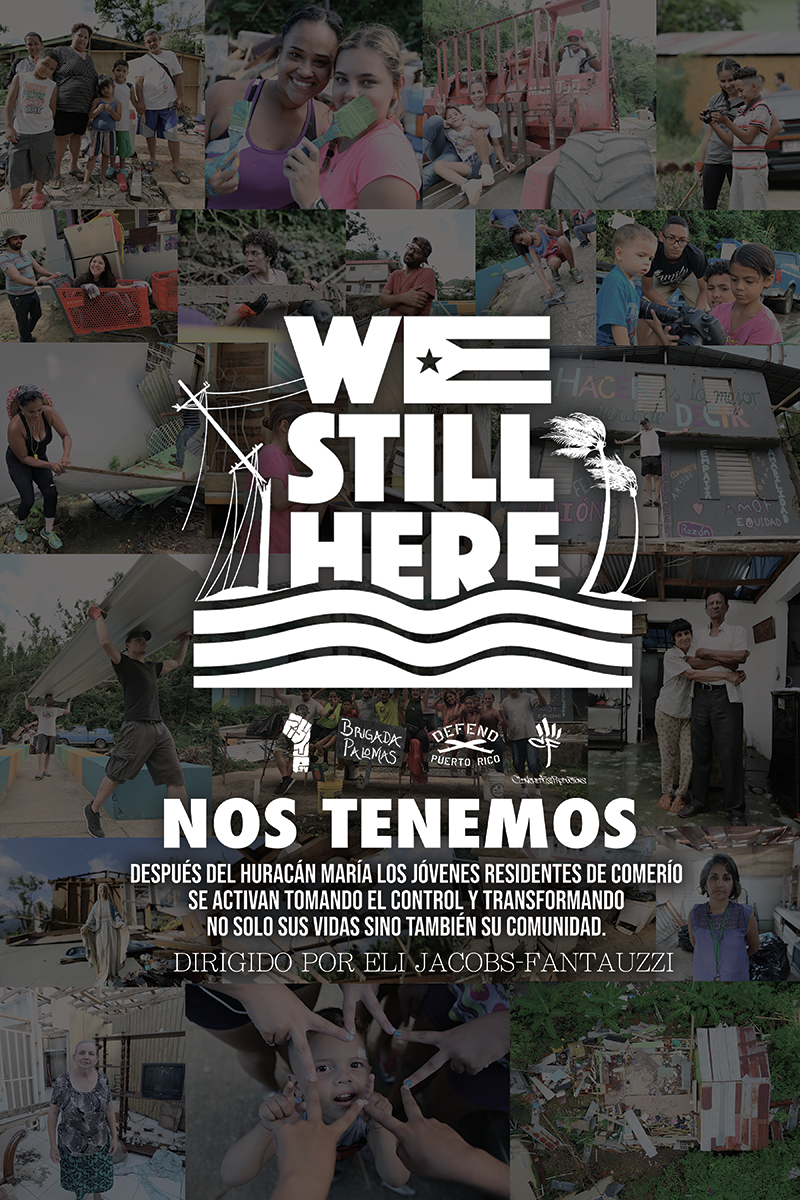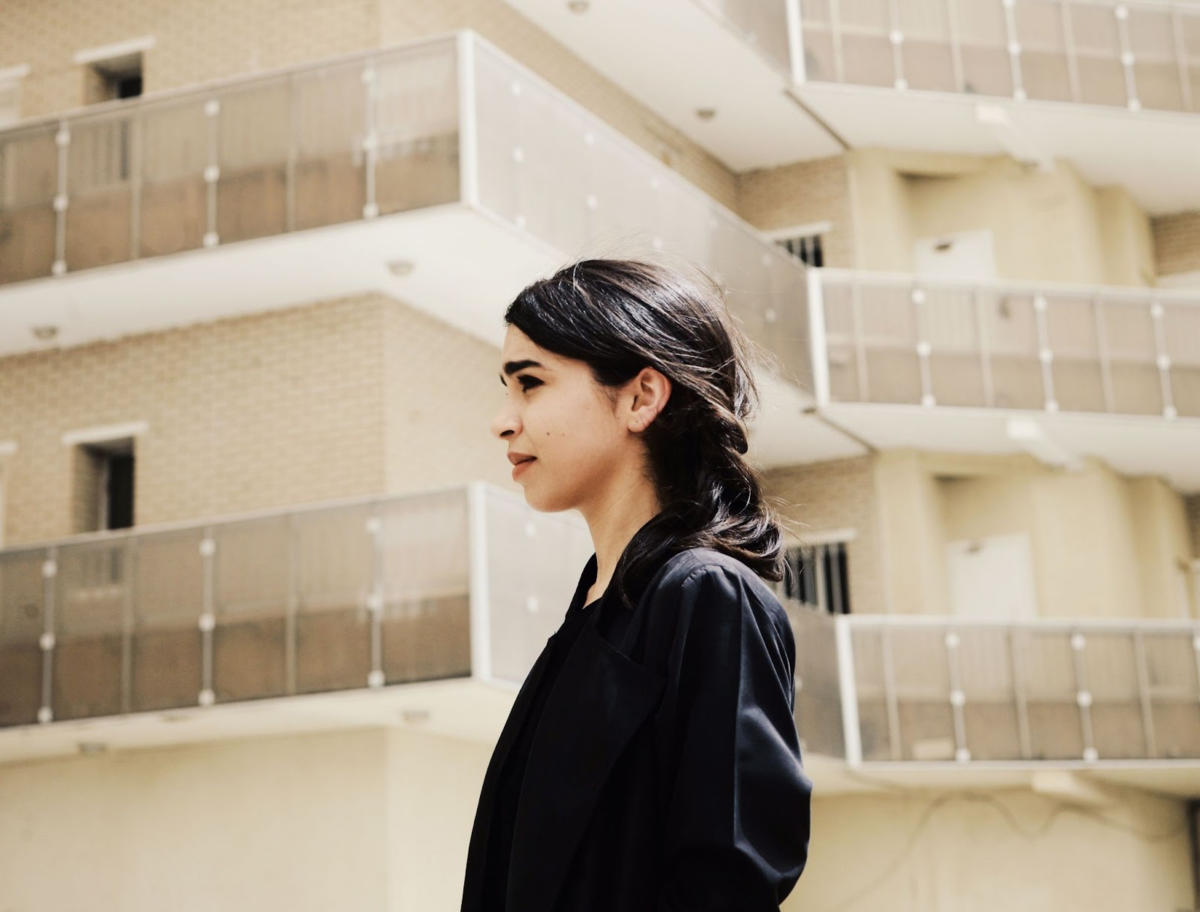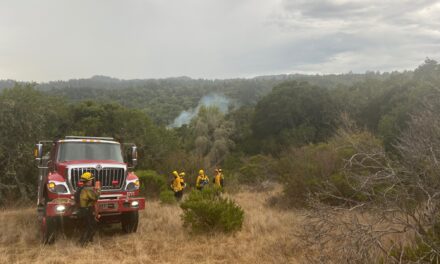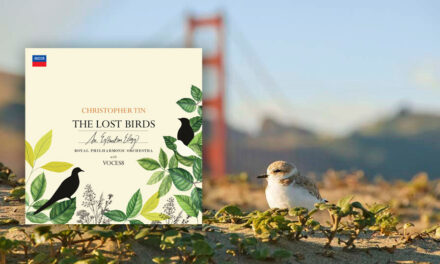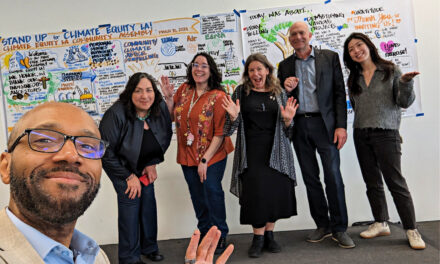Artists Circle Confronts Climate Displacement and Just Recovery
Since 2008, an annual average of 21.5 million people have been forcibly displaced due to climate disasters. As storms, wildfires, droughts and extreme temperatures continue to increase in frequency and severity, this number is projected to rise. By 2050, experts predict that roughly 1.2 billion people could be displaced globally due to the climate change crisis.
However, the world’s current leaders have paid insufficient attention to the role of the climate crisis in driving and exacerbating the displacement of people around the world.
“It is going to take artists to think about how we change our approach to this issue,” says Evan Bissell, former Arts & Cultural Strategy Coordinator for UC’s Othering and Belonging Institute.
Inspired by a 2019 Othering & Belonging Institute report called “Climate Refugees: The Climate Crisis and Rights Denied,” a UC Berkeley institute invited six experienced BIPOC artists to form an artist circle on climate displacement. Artists Alia Farid, Eli Jacobs-Fantauzzi, Jayeesha Dutta, Lizania Cruz, puck lo, and Michael Premo joined the artist circle in May 2019. For over six months, the artists met virtually to share their work, stories, and visions in addressing the challenges of climate displacement.
“The workshop opened up a lot of questions about accountability that the report did not get to,” says Bissell.
Artists often push against the linear process of storytelling and the hero-savior complex embedded within Western culture, says Bissell, describing some of the topics of circle discussions.
Eli Jacobs-Fantauzzi, one of the six artists, explained that non-extractive storytelling can be a powerful tool in advancing just recovery, a model centered on frontline communities’ ability to respond, recover and rebuild from climate disasters.
“I am an artist, filmmaker, curator, and I tell stories,” said Jacobs-Fantauzzi. “I’ve been on a journey [exploring] just storytelling.”
As a member of the Puerto Rican diaspora, Jacobs-Fantauzzi checked in on his family in Puerto Rico after Hurricane Maria.
“I wanted to get to the island quickly,” says Jacobs-Fantauzzi. “I brought a solar generator, small projector and speakers.”
Shortly after arriving back on the island, Jacobs-Fantauzzi decided to stay for the longer-term and began working on a documentary film which follows a group of youth from Comerío, Puerto Rico fighting for a just recovery post Maria. That film, We Still Here/Nos Tenemos, played at The New Parkway theater in Oakland on October 16, 2022; it will play in Lajas, Puerto Rico on March 25, 2023.
Along with documenting the impacts of the hurricane on his family and community members across Puerto Rico in “We Still Here/Nos Tenemos,” Jacobs-Fantauzzi explained that he brought the generator to start a solar cinema project run on solely solar power. While in the artist circle, Jacobs-Fantauzzi did not have electricity and was able to also use the generator to get online and join the virtual community of artists.
“Being a part of this first cohort when COVID restrictions were really strict was really inspiring.” says Jacobs-Fantauzzi.
Like Jacobs-Fantauzzi, Alia Farid, a visual artist of Kuwaiti and Puerto Rican descent, drew inspiration from the artist circle and expressed how important it was to be a part of the cohort.
“Learning about the work of Elsadig Elsheikh was one of the highlights for me,” says Farid. Elsheikh is the Director of the UC Berkeley Global Justice Program.
Farid shared that she also enjoyed a discussion with Yumna Kamel, one of the speakers in the circle, about “policy advocacy to address climate displacement and strategies to bridge the gap between art and policy making.”
Last year, two works by Farid were featured at the 2022 Whitney Biennial. Currently, Farid is developing a film and artist’s book that emotively respond to the impact of extractive industries, such as mining, oil and gas, on the land and social fabric in southern Iraq and Kuwait.
As Jacobs-Fantauzzi reflected on the circle, he shared that he is inspired to continue contributing to the movement of just storytelling and to learning from art that confronts climate displacement and visualizes the path toward a more hopeful, just future.
“It is necessary for all of these communities who are experiencing climate displacement to have the tools to know how to tell their own stories,” he says. “How can we get them the resources to do that?”



